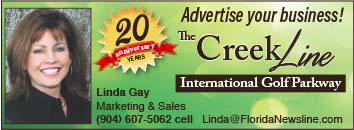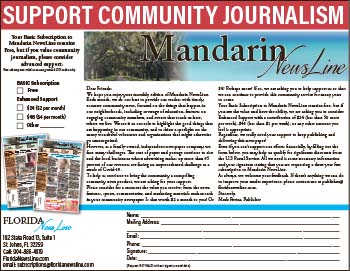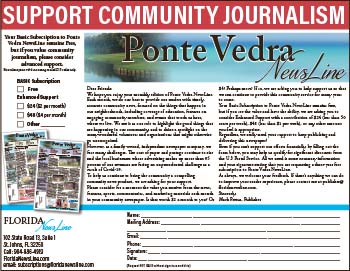By Lesley Arrandale
mail@floridanewsline.com
September was a mixed bag, meteorologically speaking, including a near miss from Hurricane Hermine, then dry, hot weather, then the rain and high winds of Hurricane Matthew in early October.
Our climate has such a big influence on our gardening success (or otherwise) that we cannot ignore it. From determining which vegetables to grow when, to what shrubs and perennials will flourish in our own particular microclimate, we are fortunate to have the resources of the University of Florida Extension Service for advice, including information on trees and hurricanes. (See http://hort.ifas.ufl.edu/homeowners/.)
I’m hoping for a good harvest of sweet potatoes before the cool season vegetables go in. I have some homemade compost ready to improve the soil and will dig it in and let the area sit for a week or two. At the same time I will also add a balanced organic fertilizer, as the compost is primarily useful to improve soil texture and add beneficial organisms; it is not always sufficiently high in nutrients to be used alone. It is interesting to learn how beneficial microbes from various types of compost help soils become more productive: http://tinyurl.com/h9faver.
While we need pollinators to be active in the spring and summer vegetable garden — think fruits, peas, beans, squash, and so on — to reproduce successfully, they need a variety of flowering plants to be available for as long as possible. Honeybees are still stocking their hives for the winter months and will forage intermittently during warmer periods. Native bees, depending on the species, lay their eggs in suitable sandy ground or plant material, and are likely to be in evidence as adults for shorter periods, while they mate and provision their nests. Some of these bees are active early in the year, while others emerge later.
I recently found a striking (probably) female scoliid wasp Campsomeris quadrimaculata, happily going about its business in the dotted horsemint. (As we know, wasps and other insects are also invaluable pollinators.) This species isn’t rare, but for me it was an unusual, and therefore welcome, sight. There are several species of scoliid wasps in Florida and they parasitize beetle larvae — a most useful trait. If you need help to identify an insect, this website could be useful: http://tinyurl.com/hwrqr2o. As well as describing how the Plant ID Laboratory at the University functions, there are a series of slideshows on common insects and a link to “Featured Creatures” for more information.
The “Florida Gardening Calendar” from the University of Florida is a month by month guide and is available here: http://tinyurl.com/zvuzsbj. As always, refer to our own Extension newsletter “A New Leaf” for local information on upcoming events, as well as gardening advice: http://duval.ifas.ufl.edu/lg_new_leaf_news.shtml. The next issue will be out in early November.
Happy gardening, everyone.
Lesley Arrandale is a Master Gardener with the Duval County Cooperative Extension Service/City of Jacksonville Agriculture Department, which is a partnership between the United State Department of Agriculture (USDA), the University of Florida Institute of Food and Agricultural Sciences (UF/IFAS) and the City of Jacksonville.











